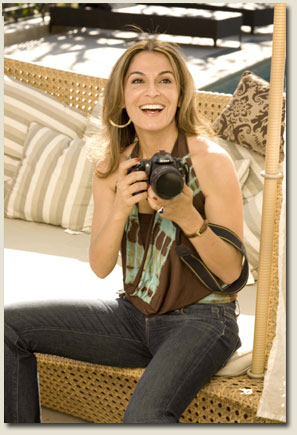Join a community of readers who are committed to Jewish stories
Sign up for JBC’s Nu Reads, a curated selection of Jewish books delivered straight to your door!
Eager to get your hands on the winter issue of Jewish Book World (due out in November)? Well, here’s a bite to hold you over. JBW’s Nicole Azulay took some time to interview Angella M. Nazarian, author of the beautiful memoir Life as A Visitor, for the upcoming issue.
 At a young age, Angella M. Nazarian was uprooted from her home in Iran and brought to her current neighborhood Beverly Hills. Never quite feeling at home, Nazarian intertwines her emigration from Iran, immigration to America, and various travels in her memoir Life as a Visitor.
At a young age, Angella M. Nazarian was uprooted from her home in Iran and brought to her current neighborhood Beverly Hills. Never quite feeling at home, Nazarian intertwines her emigration from Iran, immigration to America, and various travels in her memoir Life as a Visitor.
JBW: Most Iranians I know kind of shut out their past and difficult upbringings, what inspired you to write your personal story? Was it a painful process?
AN: Not talking about negative circumstances is part of Iranian culture. However, two things led me to be more open: One was the fact that I have a psychology background so talking about things is in my nature. Also, I believe that everything meaningful needs to be heartfelt and full of passion; hence, this story is something I am extremely passionate about. My main motivation for writing this book was my children. I think it is important for them to learn what their parents and relatives have gone through. Writing the book was extremely hard. I sometimes would literally break down and cry as I was writing. Although it was difficult, writing Life As a Visitor was a growing experience for me. Writers often explore feelings they don’t know they had in the process of writing.
JBW: In the beginning of the book you mentioned that while you were living in Iran you, along with all the other children, would wait for a man who would walk through the neighborhood with a “giant tin box.” For a coin, you could peer in the two holes he cut in the box to see slides of foreign countries. Was this what made you interested in travel?
AN: Yes. However, I was also greatly influenced by my parents’ travels as well as what I would see on television.
JBW: I noticed that you frequently referred to your paternal grandmother. She seems to have made a positive impact on your life. Can you elaborate further on why she was your role model?
AN: Although I have never met my grandmother, I feel a strong connection to her. She was the direct opposite of a typical Iranian woman. Despite living in an environment where many Jews were ashamed of being Jewish, my grandmother embraced her heritage. She wasn’t afraid of being seen. She wore Western clothes when woman of her generation were covered up. She was assertive and didn’t mind not blending in.